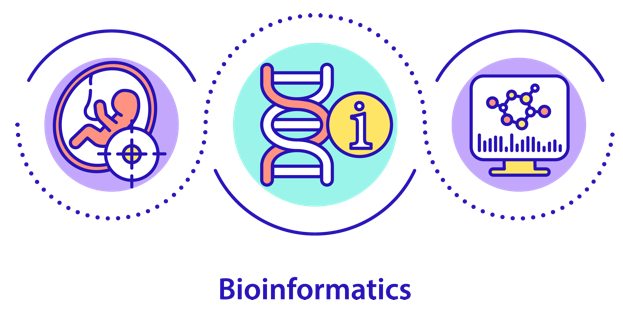Top Guidelines Of Bioinformatics Tutor
Table of ContentsBioinformatics Tutor Things To Know Before You Get ThisBioinformatics Tutor - QuestionsBioinformatics Tutor - TruthsA Biased View of Bioinformatics TutorThe 4-Minute Rule for Bioinformatics Tutor
Initial project growth is fairly lengthy, as it entails mindful planning of the topic, structuring of deliverables, and consideration of the skills and experience levels of participants. Nonetheless, as soon as a job has been plainly specified and executed, it has the possible to be recycled in future sessions with only minor alterations to reflect updates in the field or suit differences in individual histories. This makes project-based learning a reliable and sustainable training strategy in the future, specifically in quickly developing self-controls like bioinformatics.To make certain continuity and reproducibility of knowing, providing shared laboratory note pads-- either physical or electronic-- is essential. These note pads function as collective logs where pupils can record their development, code, methodologies, and results throughout the program. Not only do they reinforce discovering by urging paperwork and reflection, yet they also serve as post-course recommendation products that participants can speak with in future research or scholastic projects.
Coaches play an important function in the success of project-based programs. Mentors additionally act as role versions and inspire students to continue going after jobs in computational biology and associated areas.
Some Ideas on Bioinformatics Tutor You Should Know
An additional secret element of the learning procedure is supplying participants the opportunity to present their work to others, particularly to an audience beyond their immediate project group. Final presentations or mini-conferences enable trainees to verbalize their findings, receive useful responses, and gain self-confidence in connecting scientific content. This discussion part is frequently a favored among trainees, as it verifies their initiatives and highlights the real-world relevance of their work.
Each iteration of the program was fine-tuned based on individual responses and progressing best techniques in rearing. Bioinformatics Tutor. These adaptations made certain that the core objectives-- hands-on learning, cooperation, and applied analytical-- remained undamaged while expanding the deepness and breadth of subjects covered.
A noteworthy visualization that caught participant sentiment was a word cloud created from responses to the 2014 end-of-course study. Individuals were asked, "What was the most effective component of the program?" and their responses were assembled into a graphical word cloud. In this depiction, the dimension of each word shows exactly how frequently it was stated, with words like "hands-on," "collaboration," "real-life issues," "guidance," and "interactive" appearing most plainly. This visual comments strengthened the program's emphasis on experiential understanding and mentor support.
The contributions of people such as Rustici, G., Orchard, S., Cowley, A., and Twells, R., together with other participants of the EBI user-training-working group, contributed in refining the course structure and web content. Their insights helped shape a inclusive and versatile version that could be adjusted to numerous institutional and regional contexts.
The Of Bioinformatics Tutor

Jones, Rasmussen, and Moffitt (1997) also promoted for interdisciplinary knowing through collaborative project work, noting these details its capacity to mimic professional environments and prepare trainees for future academic or sector duties. In a comprehensive testimonial, Thomas (2000) analyzed numerous research studies on PBL and ended that trainees not only perform well academically yet additionally develop a deeper understanding of the subject and enhanced synergy skills.
In the context of bioinformatics education, cutting-edge approaches like classroom video games and simulation-based training have also been employed. Schneider and Jimenez (2013) presented the usage of interactive video games to show biological data assimilation, enabling pupils to comprehend intricate concepts via experiential discovering. This sort of gamification matches the hands-on knowing stressed in project-based training courses by presenting a component of enjoyable and competition, which can additionally improve engagement.
Returning to the course discussed below, the lessons gained from the execution of project-based discovering in a bioinformatics establishing have wider ramifications for various other STEM fields. The methodology highlights not simply technical efficiency, however likewise interaction, cooperation, and vital reasoning-- abilities that are significantly valued in both academia and industry.
Bioinformatics Tutor - Questions
The scalability of the training course layout also makes it a feasible model for other institutions. With ideal customization based upon local requirements, offered sources, and participant accounts, the framework can be replicated or adapted for usage in various other scientific domain names. Additionally, the incorporation of structured mentorship and evaluation approaches aids make sure consistent high quality and measurable knowing end results.

Finally, project-based understanding in bioinformatics uses an effective approach to training complex, interdisciplinary web content in such a way that is both obtainable and intellectually promoting. By stressing cooperation, practical application, and crucial questions, such campaigns not just boost private knowing yet likewise add to the cultivation of a new generation of proficient and ingenious researchers.
Little Known Questions About Bioinformatics Tutor.

An additional key facet of the learning procedure is offering individuals the opportunity to provide their work to others, particularly to a target market past their immediate project group.In the more comprehensive academic literary works, project-based learning (PBL) has actually been thoroughly examined and validated as a reliable method for advertising deep understanding, important thinking, and transferable abilities. Adderley et al. (1975) stressed the worth of task techniques in greater education, keeping in mind that they advertise energetic understanding and autonomy. Schneider and Jimenez (2013) presented the usage of interactive video games to instruct biological data combination, enabling pupils to grasp intricate ideas via experiential knowing.